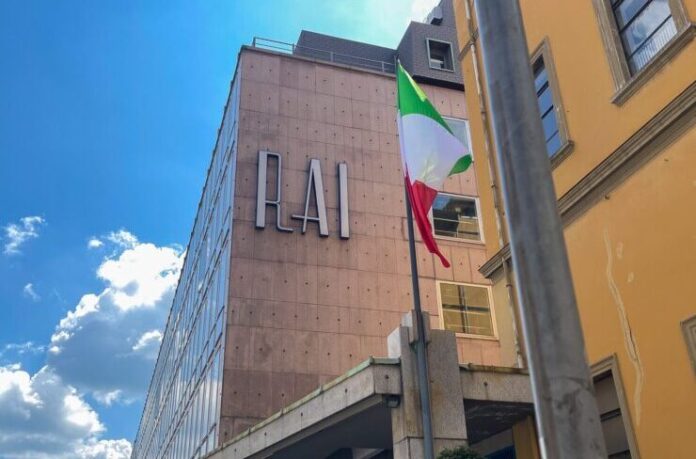
|
Getting your Trinity Audio player ready...
|
Italy’s participation in Eurovision 2026 has been thrown into doubt after three members of broadcaster RAI’s board called for the country to withdraw if Israel is allowed to compete.
Alessandro di Majo, Davide Di Pietro and Roberto Natale issued a joint statement arguing that Italy’s involvement “without any form of dissent could be interpreted as silent legitimisation”. They urged RAI to follow the example of other broadcasters that have announced they will not take part in protest.
“RAI must also question the wave of solidarity for Palestine … we ask that Italy do the same, giving a concrete sign of support to a people subjected to extermination,” the trio said. Their intervention followed a nationwide 24-hour strike on 22 September, which called on the government to recognise Palestine and suspend cooperation with Israel. The directors pointed to what they described as a “wave of solidarity” across Italy, and argued that the broadcaster should reflect that public mood.
The appeal is significant but not binding. Any withdrawal would require support from RAI’s full board or political backing from the government. As one of the “Big Five” contributors to Eurovision, Italy’s absence would mark a serious rupture and could prove politically contentious. To date, RAI has not issued any official response.
Italy’s internal debate is unfolding against a backdrop of wider unrest across Europe over Israel’s presence in next year’s contest. Spain has already taken the most decisive step, with broadcaster RTVE voting to withdraw and announcing it will not broadcast Eurovision if Israel is included. The move makes Spain the first of the contest’s major financial backers to commit to a boycott.
Poland’s culture minister Marta Cienkowska has publicly argued that her country “should not take part” under the current circumstances, though she made clear that she was speaking in a personal capacity. The broadcaster TVP has so far adopted a neutral line, saying only that it is monitoring developments and will abide by any decision from the European Broadcasting Union.
Belgium remains divided. The French-language broadcaster RTBF has said it will wait until December, when the EBU General Assembly is expected to discuss the issue, before taking a final decision. By contrast, the Flemish broadcaster VRT has expressed support for countries considering a boycott, and two Flemish political parties, CD&V and Vooruit, have called on Belgium to withdraw.
The EBU is under growing pressure. Austria, which will host the 2026 contest, has already warned that a boycott risks fracturing the union and undermining Eurovision’s role as a cultural meeting point.
Whether Italy follows through will depend on whether the three dissenting board members can rally wider institutional support. What is clear is that Eurovision’s claim to be a politically neutral space is under unprecedented strain, and Italy’s decision in the months ahead may prove decisive in shaping the contest’s future.





